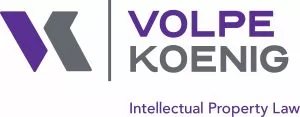Trademarks function to identify the source or origin of products or services and distinguish them from the products or services of others. On the other hand, generic terms are used by consumers to refer to a type of product or service that cannot function or be registered as a trademark. For example, one cannot register COMPUTER as a trademark for laptops and personal computers. Likewise, one cannot register "APPLE" to identify a fruit (as opposed to "APPLE" to identify computer technology).
However, what if a generic term is combined with ".com" or another top-level domain? Can that combination create a federally protectable trademark?
On Tuesday, June 30, 2020, in the case United States Patent and Trademark Office v. Booking.com B.V., Docket No. 19-46, the U.S. Supreme Court answered that question in the affirmative. In an 8-1 landmark decision written by Justice Ginsburg (Justice Breyer dissenting), the Court stated that the combination of the generic term "Booking" with the generic top-level domain ".com" could be registered as a federal trademark provided the significance of the whole mark serves as a source identifier to consumers, rather than as a generic term.
In reaching its decision, the Court adopted Booking.com's position that consumers do not consider a "Booking.com" to be a class of goods, in that they would not describe competitors as "a Booking.com" or describe a particular business as their "favorite 'Booking.com' provider." When used by consumers, therefore, the Court found that BOOKING.COM can refer to a single business and source of services.
The decision put an end to the PTO's bright-line rule against registering a generic word plus a top-level domain in combination, and could have positive effects for businesses on the internet. Businesses such as Wine.com, Newspapers.com, Dictionary.com, and Cars.com now have Supreme Court precedent supporting such terms as registrable trademarks.
As a side note, the Booking.com case was the Supreme Court's first oral argument ever conducted over the phone, a change of procedure due to the coronavirus pandemic.
Originally published 1 July 2020.
The content of this article is intended to provide a general guide to the subject matter. Specialist advice should be sought about your specific circumstances.
We operate a free-to-view policy, asking only that you register in order to read all of our content. Please login or register to view the rest of this article.


